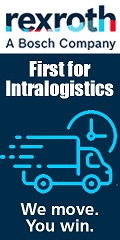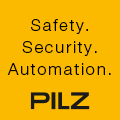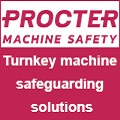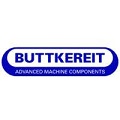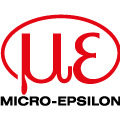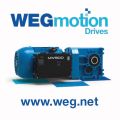
Posted to News on 5th May 2009, 13:36
Explaining 'Manufacturing Convergence' and its benefits
This article from Rockwell Automation explains what is meant by 'Manufacturing Convergence' and looks at the four main industry drivers and how to apply the core automation disciplines.
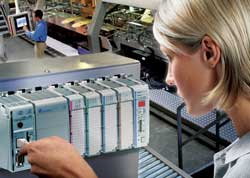
Over the past decade, convergence has become a much overused word, but today the combination of technology maturity and economic necessity has made Manufacturing Convergence a reality.
Manufacturing Convergence is the merging of traditionally separate functions and systems to create new capabilities within the business. With people, processes and technology working in unison, manufacturers can achieve higher levels of business performance, turn resources into assets and discover new opportunities for increased competitiveness.
Manufacturing Convergence helps businesses respond to meet the four major market drivers of productivity, innovation, globalisation and sustainability by allowing technologies, people and processes to be combined in novel ways.
Productivity has been the traditional manufacturing market driver. Lean manufacturing, quality, throughput and asset utilisation have been the foundations of an effective productivity culture, forming the basis for manufacturing competitiveness for decades. But today, those incremental benefits are becoming harder to squeeze out and business pressures are intensifying. Where will the next major productivity breakthroughs come from?
Globalisation promises nearly endless market potential, but it also brings new competitive challenges including commoditisation, product pirating and maintaining global standards. How will organisations survive in such an intense competitive environment without a radical rethink of their practices?
Innovation must occur in all functions across the organisation. Manufacturing Convergence has a significant role to play here. Imagine a world where it may be possible to model a whole operation digitally so that new production concepts can be tested virtually; manufacturing equipment can be more quickly reconfigured in response to customer demand; or new machine designs can monitor their health, throughput and yield and report corrective actions to the maintenance staff as well as a global service centre on a 24/7 basis.
Sustainability is an increasingly important business imperative. Having experienced spiralling energy prices, manufactures are taking a fresh look at the economics of their businesses. Safety of both products and processes is no longer an option; it is now an imperative to minimise the risk to customers, employees and the environment. What if energy costs could become a managed variable within the process control strategy? What if it was possible to measure and manage a company's carbon footprint and process emissions to the benefit of the environment and the business?
All these advances are now possible through a Manufacturing Convergence approach. Successful Manufacturing Convergence leverages the four core automation disciplines of information, communications, control and power to drive the business forward.
Information
James W Fonda, advanced technologist for networked systems at the Boeing Company, comments: "We want to see where we can make a big difference. You have to have information in a manageable form so you can act on it. By recording and proving out the data, we can show that we make a difference."
The new goal is presenting information in context; delivering insight for better decision-making and exposing competitive opportunities. Today, all the information sources can be streamlined to allow configuration, visualisation, maintenance and optimisation of manufacturing processes and critical plant assets.
Communications
Robert Schlafer, director of engineering at PepsiAmericas, states: "We want our equipment notifying our people that something will occur so that they can observe that situation and take action before it becomes a 9-1-1 [emergency situation]."
Business value flourishes when IT and manufacturing departments can share information seamlessly and securely, while running multiple applications over the same network. Today standard, unmodified Ethernet is being adopted broadly across the plant and enterprise for data collection and real-time control. Emerging functionality such as voice, video and a range of mobility applications are beginning to appear in the plant environment; unleashing new opportunities for collaboration throughout the manufacturing environment.
Control
Tetra Pak, a liquid food processing and packaging company, has seen as high as 40 per cent reductions in operating costs from a new generation of performance lines that takes line integration, data management and automation technology "to a new level," notes Paolo Scarabelli, manager of automation and line integration.
Thanks to multiple control disciplines, control functions can be combined as the application demands. Today, a common control platform deployed plant-wide can help reduce integration costs, time to market and maintenance costs.
Power
The control and management of power equipment in a plant is a competitive advantage in a world with high energy and downtime costs. Converging these strategic assets into the broader automation environment allows for greater co-ordination and optimisation of these strategic assets.
But despite the advances in technology, true Manufacturing Convergence is still a complex environment to achieve and it cannot be delivered by one supplier alone. Rockwell Automation, for example, delivers its convergence-ready offering using its own technology and experience backed by a mix of strategic partners such as Cisco, Dassault Systemes, Microsoft and other industry leaders. Its approach is founded on its open Integrated Architecture to allow manufacturers to build a business where information can flow across the organisation creating compelling competitive advantages.
Although the technology challenges for manufacturing convergence have been solved and the economic necessity for businesses to change is now stronger than ever, one of the few remaining potential barriers to this change will be people themselves. The walls between the enterprise, IT and the plant floor have long been in place but if manufacturers can break down these walls and push for Manufacturing Convergence, then despite the economic challenges, this difficult period in business history may still be seen as a major step forward in manufacturing.



